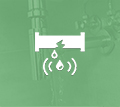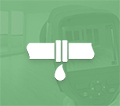Understanding Water Pressure: Optimizing Performance and Preventing Damage
Water pressure is a critical aspect of any home’s plumbing system. Properly managed water pressure ensures that your faucets and appliances operate efficiently, but too much or too little pressure can lead to significant issues. This blog post delves into the fundamentals of water pressure, its impact on your plumbing system, and practical tips for optimizing it to prevent damage and maintain performance.
What is Water Pressure?
Water pressure is the force with which water flows through your pipes. It is measured in pounds per square inch (psi) and can vary depending on the source and the condition of your plumbing system. Ideally, your home’s water pressure should fall within a range that allows for optimal performance without causing stress on the plumbing infrastructure.
Signs of Incorrect Water Pressure
Incorrect water pressure can manifest in several ways:
Low Water Pressure: A weak water flow from your faucets or showerheads could indicate low water pressure. This can result from clogged pipes, leaks, or problems with the municipal water supply.
High Water Pressure: Excessive water pressure can rattle pipes, lead to frequent leaks, damage appliances like dishwashers and washing machines, and increase water bills due to the increased flow rate.
Impact on Your Plumbing System
Both low and high water pressure can have detrimental effects on your plumbing system:
Pipe Damage: High water pressure can strain pipes and joints, leading to leaks and bursts. Over time, this can cause significant damage and require costly repairs.
Reduced Efficiency: Low water pressure can result in inefficient water flow, affecting the performance of your fixtures and appliances. This can lead to longer wait times for hot water and decreased functionality of your plumbing system.
How to Optimize Water Pressure
Install a Pressure Regulator: A pressure regulator helps maintain consistent water pressure, preventing damage from high pressure. It is especially useful for homes with fluctuating water pressure.
Regular Maintenance: Schedule regular plumbing inspections to identify and address leaks, clogs, or corroded pipes that may affect water pressure.
Check for Leaks: Leaks can lead to decreased water pressure and wastewater. Ensure your plumbing system is leak-free by checking for damp spots or unusual water sounds.
Clean Faucets and Showerheads: Mineral deposits can accumulate in faucets and showerheads, reducing water flow. Regular cleaning can help maintain optimal water pressure.
Professional Assistance
If you encounter persistent issues with water pressure, it’s essential to seek professional help. A licensed plumber can diagnose the problem, recommend solutions, and ensure your plumbing system operates efficiently.
Ensuring Optimal Water Pressure for Your Home
Understanding and managing water pressure is crucial for maintaining a functional and efficient plumbing system. By addressing issues promptly and implementing preventive measures, you can enhance the performance of your fixtures and avoid costly damage.
Contact Us Today
For expert assistance with water pressure issues or any other plumbing needs, contact 1st Choice Plumbing, Flood & Restoration at 866-437-0205. Our experienced team is here to help ensure your plumbing system functions smoothly and efficiently.










